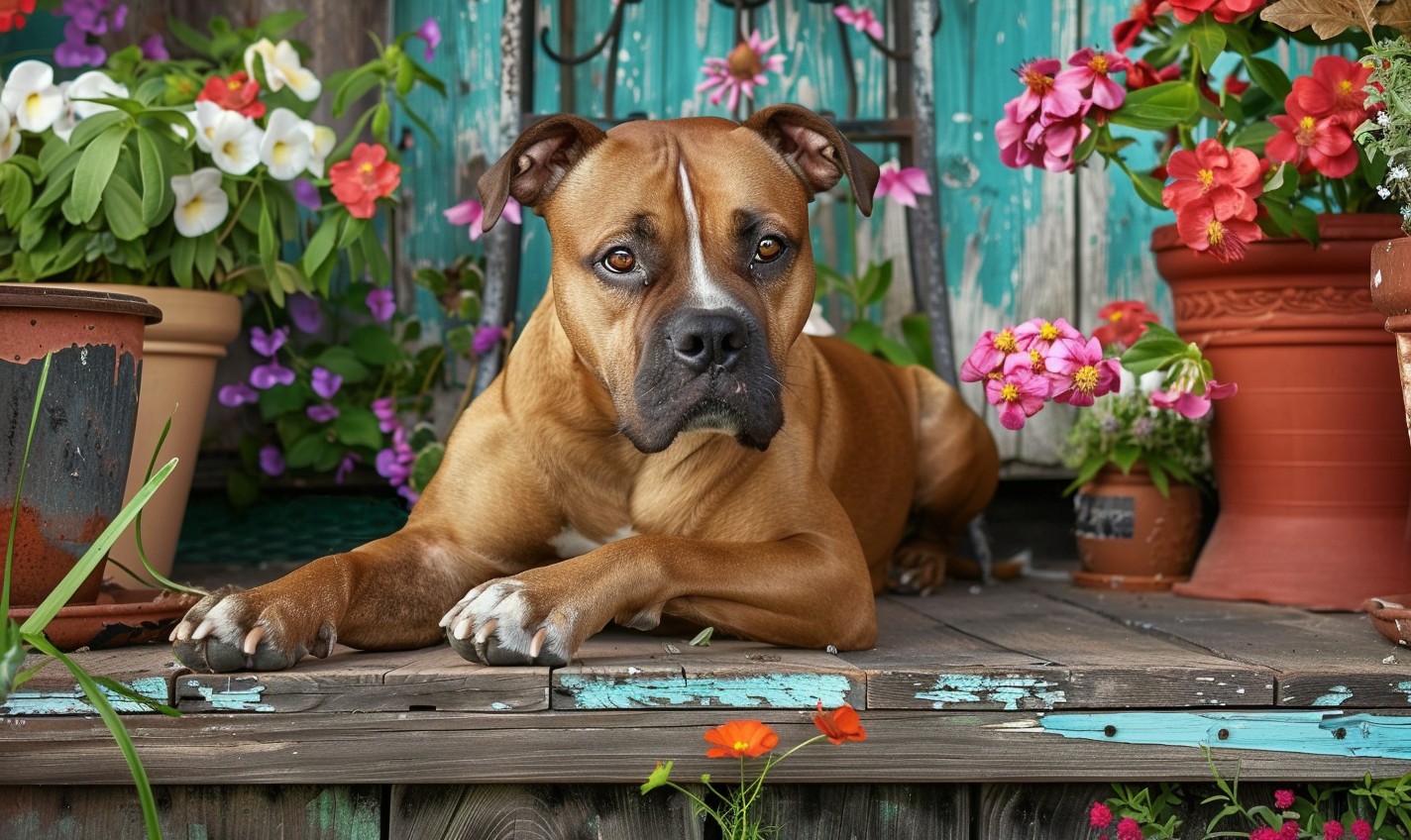
Can dogs eat popcorn? Short answer- yes. But as with any human food (and even some dog foods), there are caveats. Below, we’ll go over everything you need to know about feeding Fido your favorite movie-night snack, from the nutritional benefits and potential hazards of popcorn to tips on how to safely include it in your dog’s diet. Let’s dig in, shall we?

Can Dogs Eat Popcorn?
As dog owners, we often share our favorite snacks with our pups, and a bowl of popcorn, especially on movie night, is no exception. The sight of those soulful eyes begging for a nibble of your popcorn can be hard to resist.
But before you reach for that bowl, it’s essential to consider whether popcorn is safe and suitable for our canine friends. Let’s explore the upsides and downsides of popcorn for dogs to help you make an informed decision about sharing this popular snack with your four-legged companion.
You may also love: What Nuts Can Dogs Eat?
Benefits of Popcorn for Dogs
Popcorn itself is not toxic to dogs, making it a safer option than many other human snacks that can harm our furry friends. In fact, there are even a few benefits to giving it to Fido as an occasional snack, including:
Low in Calories (when air-popped and unsalted):
Plain popcorn, or air-popped popcorn, is low-calorie and low-fat, making it an excellent snack for pups who need to shed a few pounds. However, avoid adding butter, oils, salt, or other toppings, as these can quickly turn a healthy snack into a calorie-rich indulgence.
Fiber Content:
Popcorn contains dietary fiber, which can help in regulating your dog’s digestive system. A healthy amount of fiber promotes good bowel movements and contributes to overall gut health.
Contains Some Nutrients:
Popcorn is a whole grain that contains some essential nutrients beneficial to dogs. It is a source of dietary fiber, which can aid digestion and regulate bowel movements.
Additionally, popcorn contains small amounts of vitamins and minerals, such as B vitamins, magnesium, zinc, potassium, and phosphorus, contributing to your dog’s overall health.
Great for Training:
If you have a highly food-motivated pooch, popcorn makes a great alternative to dog treats during training sessions. One cup of air-popped popcorn only has about 30 calories, and chances are you won’t even use the entire cup in one training session. I can’t find the exact amount of calories in a single piece, but I do know that it’s fewer than even the tiniest low-cal dog training treats.

Downsides of Popcorn for Dogs:
While plain air-popped popcorn is typically safe for dogs, there are some exceptions. Let’s look at some of the downsides.
Potential Choking Hazard
The most significant concern with feeding popcorn to dogs is the risk of choking or getting the popcorn lodged in their throat.
Dogs may not chew popcorn thoroughly, leading to potential choking incidents. This risk is higher for small dog breeds or those who tend to gulp their food.
Additives and Seasonings:
Many commercially available popcorn varieties are chock full of additives, salt, butter, xylitol, and artificial flavorings, which are harmful to dogs. These additives can lead to stomach upset, diarrhea, vomiting, dehydration, and sodium toxicity.
Also, while we’re talking additives, kettle corn and caramel popcorn are NOT good snacks for dogs because they are high in butter, salt, and sugar. Plus, they can also cause tooth decay.
Un-popped Kernels:
Beware of un-popped kernels, as they can cause dental fractures or harm your dog’s digestive tract if ingested. Always make sure the popcorn is fully popped before sharing it with your pet.
Sensitivities:
Some dogs may be allergic or sensitive to corn, which can cause skin irritations, itching, or gastrointestinal issues. If you suspect your dog has a food allergy or sensitivity to corn, avoid giving them popcorn altogether.
Obesity and Pancreatitis:
While plain popcorn can be low in calories, adding butter, oils, or other toppings can quickly turn it into a high-calorie, high-fat treat. Overindulgence in such popcorn can lead to weight gain and even obesity and, in severe cases, trigger pancreatitis, a potentially life-threatening condition in dogs.
Affecting Regular Diet:
Feeding popcorn to your dog in large quantities or too frequently can disrupt their regular diet and nutritional balance. It is essential to ensure that popcorn treats do not make up a significant portion of your dog’s daily caloric intake.

Popcorn Safety Tips for Dogs
- Air-Popped and Plain is Best: If you share popcorn with your dog, opt for plain, air-popped popcorn without salt, butter, or toppings. This minimizes the risks associated with additives and high-calorie content.
- Feed-in Moderation: As with any treat, moderation is key. Use popcorn as an occasional reward or during training sessions rather than a regular part of your dog’s diet. Small portion size is best.
- Check for Allergies: Before introducing popcorn to your dog, observe them for any signs of allergies or digestive issues. If you notice any adverse reactions, discontinue feeding popcorn immediately and consult your veterinarian.
- Avoid Sharing Flavored or Microwave Popcorn: Flavored or microwave popcorn often contains harmful additives and artificial flavorings. It’s best to avoid sharing these types of popcorn with your dog altogether.
Conclusion:
In conclusion, dogs can eat popcorn in moderation, but there are essential considerations to remember. Plain, air-popped popcorn can be a safe, low-calorie treat option, providing nutritional benefits for your furry companion. However, potential choking hazards, unpopped kernels, additives, allergies, and digestive sensitivities are significant downsides that should not be overlooked.
As a responsible pet owner, it is crucial to prioritize your dog’s health and well-being over their desire for popcorn. If you choose to share popcorn with your dog, do so thoughtfully, and always ensure that it complements their regular, balanced diet.
When in doubt, consult your veterinarian for personalized advice on whether popcorn is a suitable treat for your specific pup. Remember, the key to a healthy, healthy furry companion lies in a balanced and nutritious diet with plenty of love and attention.






